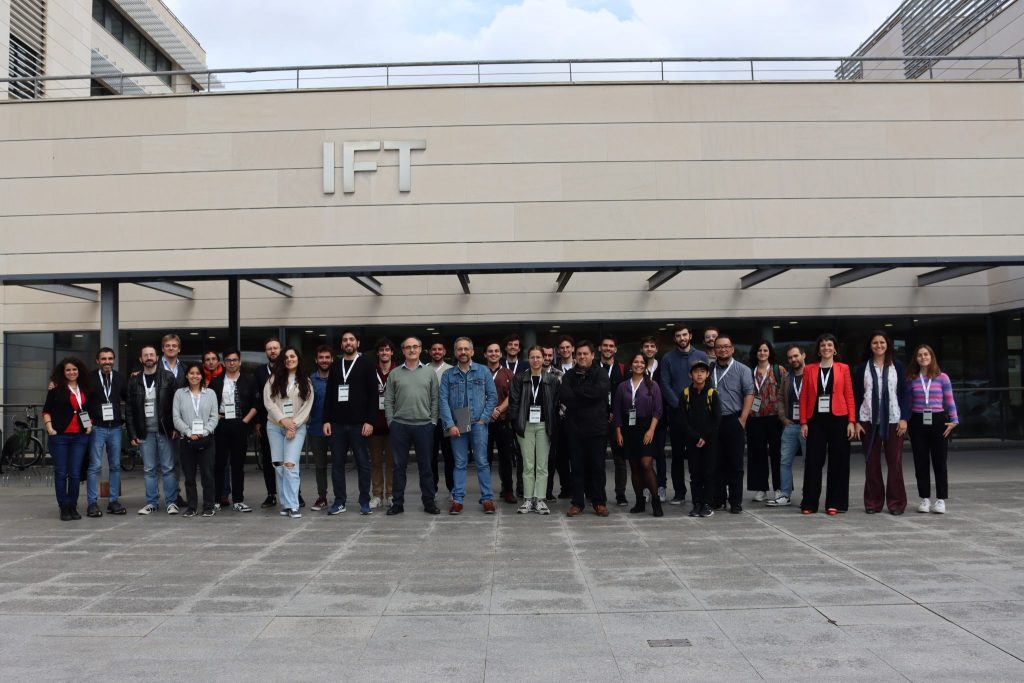- International experts meet in Madrid at the AI goes MAD² conference to explore the impact of machine learning on the study of the universe and fundamental particles.
- The relationship between theoretical physics and AI is highlighted at an event marked by the recent Nobel Prizes in Physics and Chemistry.
The Institute of Theoretical Physics (IFT UAM-CSIC) is hosting this week the second edition of the AI goes MAD² conference. This three-day event, held at the IFT facilities on the UAM campus, brings together international experts in theoretical physics and artificial intelligence to discuss advances at the intersection between these two areas of research.
This year’s edition addresses a broader range of topics, reflecting the growing interest and involvement of the scientific community in the interaction between artificial intelligence (AI) and physics.
According to researcher Ernesto Arganda, one of the conference organisers: ‘In this edition we have achieved greater thematic diversity and an increase in the number of participants, which is optimal for consolidating this workshop in the long term’.
Arganda also highlights the relevance of the event in the current context: ‘It coincides with the recent awarding of the Nobel Prizes in Physics and Chemistry and with the rise of the AI Revolution, which makes this meeting not only interesting for society in general, but also essential for the theoretical physics community.’
Miguel Ángel Sánchez Conde, astrophysicist and researcher at the IFT, points out the growing relevance of these technologies: “Artificial intelligence techniques are progressively becoming standard tools not only in our community, but also in other scientific fields. Therefore, these workshops are essential to promote the exchange of knowledge at this opportune moment”.
The aim of the conference is to facilitate the exchange of ideas between researchers from diverse disciplines, including particle physics, gravity, strings, cosmology, astrophysics, quantum computing and high-performance computing. Applications of artificial intelligence and machine learning in these fields are transforming both research methods and data analysis in theoretical physics.

Featured speakers include Savannah J. Thais (Columbia University), who addresses the evolving role of AI in particle physics; Cecilia Garraffo (Harvard University), who presents AI-driven advances in astronomy; and Mario Krenn (Max Planck Institute for the Science of Light), who will talk about the creation of new ideas in science using artificial intelligence tools.
The conference agenda includes sessions by experts from leading institutions such as MIT, Max Planck, Columbia, Harvard and UAM, addressing topics ranging from the use of deep learning in gamma-ray observatories to the application of AI in the search for large-scale structures in the universe.
By IFT Communication